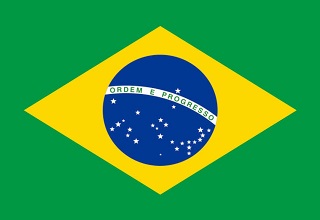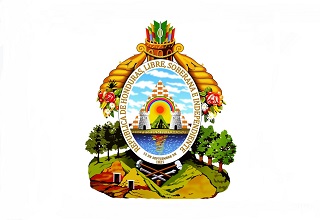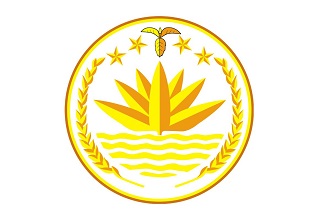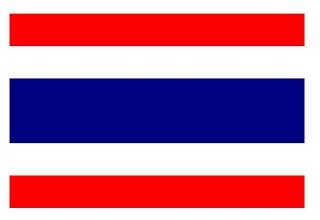Regarding the Inspection and Quarantine Requirements for Export of Pet Food from Belgium to China
According to the regulations of China Customs and the Belgian Food Safety Agency regarding quarantine and sanitation requirements for Belgian pet food imported into China, Belgian pet food that meets the following requirements is permitted to be imported.
I. Inspection and Quarantine Basis
(1) "Biosafety Law of the People's Republic of China";
(2) "Law of the People's Republic of China on Import and Export Animal and Plant Quarantine" and its implementing regulations;
(3) "Measures for the Supervision and Administration of Inspection and Quarantine of Imported and Exported Feed and Feed Additives";
(4) "Protocol between the General Administration of Customs of the People's Republic of China and the Federal Agency for Food Chain Safety of the Kingdom of Belgium on Quarantine and Sanitation Requirements for Belgian Pet Food Imported into China".
II. Scope of Permitted Import Products
Pet food, as used in this announcement, refers to industrially processed and manufactured products intended for direct consumption by pets (dogs and cats), including wet food, dry food, snacks, and chews.
III. Requirements for Manufacturers
Manufacturers of pet food imported into China must meet the following requirements:
(1) Be approved by the Belgian Food Safety Agency and produce legally.
(2) Implement a hygiene management system based on the principles of Hazard Analysis and Critical Control Points (HACCP).
(3) Accept supervision and inspection by the Belgian Food Safety Authority and have not been subject to production suspension or production restrictions due to safety and hygiene issues.
(4) Obtain registration with the Chinese Customs upon recommendation by the Belgian Food Safety Authority. The registration period for Belgian pet food production and processing enterprises exporting to China is five years.
IV. Requirements for Animal Sources of Raw Materials
(1) Must not be derived from ruminants (except milk and dairy products).
(2) Must not be derived from illegally hunted or illegally caught animals.
(3) Must not be derived from animals that have died of an animal disease.
(4) Must not be derived from animals that have been restricted in movement or culled to control or eradicate an animal disease.
(5) Terrestrial animals must be slaughtered in a slaughterhouse approved by the Belgian Food Safety Authority, undergo ante-mortem and post-mortem inspections, and show no clinical symptoms of zoonotic diseases that could be transmitted to humans or animals through the product.
V. Requirements for Raw Materials
(I) Must pass safety and hygiene monitoring and testing by the Belgian Food Safety Authority, comply with relevant Belgian and EU laws, regulations, and safety and hygiene requirements, and be suitable for pet food production.
(II) Animal-derived raw materials must meet the following requirements:
1. They must not contain ruminant-derived ingredients and must not be contaminated by ruminant-derived ingredients (except milk and dairy products).
2. They must come from areas free of African swine fever, classical swine fever, swine vesicular disease, and foot-and-mouth disease, as determined by the World Organization for Animal Health and approved by China Customs.
3. They must not come from countries and regions subject to epidemic restrictions imposed by China Customs.
4. Animal-derived raw materials from countries other than Belgium must be legally imported, have passed inspection and quarantine by the Belgian Food Safety Authority, and be legally used in pet food production.
5. Aquatic raw materials must be derived from aquatic animals (except aquatic mammals) and fish by-products produced during the production of products for human consumption, and the animals from which the raw materials are derived must be free of infectious diseases.
(III) Plant-derived raw materials must not contain toxic or harmful substances that could harm animal health or prohibited ingredients; and must not contain genetically modified ingredients not officially approved by China.
VI. Production and Processing Requirements
(1) Manufacturers shall organize production in accordance with a hygiene management system approved or recognized by the Belgian Food Safety Authority and implement effective control over critical control points in production.
(2) The Belgian Food Safety Authority shall conduct daily supervision of production and processing in accordance with relevant Belgian and EU laws and regulations to ensure that the production and processing processes continue to comply with the relevant safety and hygiene management regulations of the Belgian Food Safety Authority and the company.
(3) Canned pet food shall be heat-treated with an F0 value of no less than 3.0.
(4) Extruded dried pet food shall be extruded and dried at a core temperature of at least 120°C, or processed using other equivalent methods assessed and approved by China Customs.
(5) Other processed pet food shall be heat-treated at a core temperature of at least 90°C, or processed using other equivalent methods approved by the Belgian Food Safety Authority and recognized by China Customs. Animal raw materials shall be processed using processes approved by EU regulations to ensure the elimination of risks of diseases such as highly pathogenic avian influenza and Newcastle disease.
(6) All dairy ingredients must undergo heat treatment and other processing techniques (colostrum is processed using ionization to preserve antibodies). The heat treatment and ionization processing methods must comply with relevant EU regulations and be approved by Chinese Customs.
(7) Effective measures must be implemented during the production process in accordance with the relevant requirements of the hygiene management system to prevent contamination from unapproved raw materials, foreign matter, etc.
VII. Packaging, Labeling, Storage and Transportation Requirements
(1) Packaging materials must be new and clean, with good sealing and moisture-proof properties and be difficult to break.
(2) Chinese labels must be applied to the packaging and comply with the requirements of China's "Pet Food Labeling Regulations."
(3) The outer packaging must indicate the name and registration number of the manufacturer and processor, and be marked with the Chinese characters "输往中华人民共和国" and "非供人类食用" or "仅用于宠物食用".
(4) Effective measures must be implemented during the storage and transportation of pet food to prevent contamination.
VIII. Product Requirements
(1) Pet food must be freely sold in Belgium and fully traceable.
(2) Must not contain any prohibited items as stipulated by Chinese customs laws and regulations.
(3) Must not be contaminated by unapproved raw materials or ingredients.
(4) Must not contain any toxic or harmful substances that could harm animal health and must comply with relevant safety and hygiene standards of Belgium, the EU, and China.
(5) Prior to export, five samples will be randomly selected from each production batch for testing. The test results must meet the following requirements:
1. Canned pet food must meet commercial sterility requirements;
2. Non-canned pet food must meet the following requirements:
Salmonella: Not detected in 25 grams: n = 5, c = 0, m = 0, M = 0;
Enterobacteriaceae: n = 5, c = 2, m = 10, M = 300 in 1 gram.
Where:
n = number of samples tested;
c = number of samples with bacterial counts between m and M. If the bacterial count of other samples is m or less, the sample is still considered acceptable.
m = bacterial count threshold; if the bacterial count in all samples does not exceed m, the result is considered to meet the requirements;
M = maximum bacterial count; if the bacterial count in a single sample or multiple samples is M or more, the result is considered to meet the requirements.
IX. Pre-export Inspection and Certificate Requirements
Pet food imported into China must be inspected and quarantined by the Belgian Food Safety Authority, which will issue a health certificate certifying that the product meets the requirements of the relevant protocols between the two parties. Each batch of pet food must be accompanied by a health certificate written in Chinese or English, one original and two copies.
X. Entry Quarantine Approval
Importing companies must apply for an "Entry Animal and Plant Quarantine Permit" in accordance with relevant regulations.
XI. Entry Inspection and Quarantine
(I) Document Verification
1. Verify that the "Entry Animal and Plant Quarantine Permit" is attached (except for products for which quarantine approval has been cancelled).
2. Verify that the product is from a registered company.
3. Verify that the health certificate is authentic and valid.
(2) Goods Inspection.
China Customs will conduct inspection and quarantine on pet food imported from Belgium to China in accordance with relevant laws, administrative regulations, and rules, in conjunction with the requirements of this Announcement. Pet food that passes inspection and quarantine will be permitted entry.
(3) Handling of Non-Compliances.
1. Pet food without a valid health certificate will be returned or destroyed.
2. Pet food produced by non-registered Belgian manufacturers will be returned or destroyed.
3. Pet food containing unapproved animal-derived ingredients will be returned or destroyed.
4. Pet food that does not match the goods and certificates will be returned or destroyed.
5. Pet food containing soil, animal carcasses, animal excrement, or quarantine pests will be returned or destroyed if effective quarantine cannot be carried out.
6. Pet food that does not meet Chinese pet food hygiene standards and whose labeling cannot be corrected will be returned or destroyed.
7. Pet food found to be non-compliant with Chinese pet food hygiene standards due to safety and hygiene requirements will be subject to pest control, return, or destruction.
8. If loose packages or broken containers are found, the owner or agent is responsible for restoring them. If packaging is damaged and poses a risk of spreading animal or plant diseases, the contaminated site, items, and equipment must be quarantined.
9. If serious or repeated non-compliance is found, Chinese Customs may suspend the import permits of Belgian companies.
GACC
October 10, 2025




